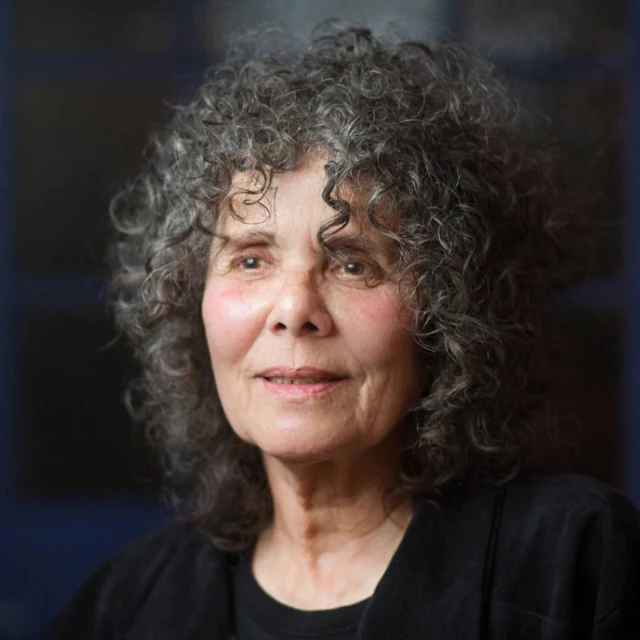LUIS J. RODRIGUEZ
Love Poem to Los Angeles
(with a respectful nod to Jack Hirschman)
1.
To say I love Los Angeles
is to say
I love its shadows and
nightlights,
its meandering streets,
the stretch of
sunset-colored beaches.
It’s to say I love the
squawking wild parrots,
the palm trees that fail
to topple in robust winds,
that within a half hour of
L.A.’s center
you can cavort in snow,
deserts, mountains, beaches.
This is a multi-layered
city,
unceremoniously built on
hills,
valleys, ravines.
Flying into Burbank
airport in the day,
you observe gradations of
trees and earth.
A “city” seems to be an
afterthought,
skyscrapers popping up
from the greenery,
guarded by the mighty San
Gabriels.
2.
Layers of history reach
deep,
run red, scarring the soul
of the city,
a land where Chinese were
lynched,
Mexican resistance
fighters hounded,
workers and immigrants
exploited,
Japanese removed to
concentration camps,
blacks forced from
farmlands in the South,
then segregated,
diminished.
Here also are blessed
native lands,
where first peoples like
the Tataviam and Tongva
bonded with nature’s
gifts;
people of peace, deep
stature, loving hands.
Yet for all my love
I also abhor the “poison”
time,
starting with Spanish
settlers, the Missions,
where 80 percent of
natives
who lived and worked in
them died,
to the ruthless murder of
Indians
during and after the Gold
Rush,
the worst slaughter of
tribes in the country.
From all manner of
uprisings,
a city of acceptance began
to emerge.
This is “riot city” after
all—
more civil disturbances in
Los Angeles
in the past hundred years
than any other city.
3.
To truly love L.A. you
have to see it
with different eyes,
askew perhaps,
beyond the fantasy-induced
Hollywood spectacles.
“El Lay” is also known
for the most violent
street gangs,
the largest Skid Row,
the greatest number of
poor.
Yet I loved L.A.
even during heroin-induced
nods
or running down
rain-soaked alleys or getting shot at.
Even when I slept in
abandoned cars,
alongside the “concrete”
river,
and during all-night movie
showings
in downtown art deco
theaters.
The city beckoned as I
tried to escape
the prison-like grip of
its shallowness,
sun-soaked image, suburban
quiet,
all disarming,
hiding the murderous heart
that can beat at its
center.
L.A. is also lovers’
embraces,
the most magnificent lies,
the largest commercial
ports,
graveyard shifts,
poetry readings,
murals,
lowriding culture,
skateboarding,
a sound that hybridized
black, Mexican, as well as
Asian
and white migrant
cultures.
You wouldn’t have
musicians like
Ritchie Valens, The Doors,
War,
Los Lobos, Charles Wright
&
the Watts 103rd Street
Rhythm Band,
Hiroshima, Motley Crue,
NWA, or Quetzal
without Los Angeles.
Or John Fante, Chester
Himes, Charles Bukowski,
Marisela Norte, and Wanda
Coleman as its jester poets.
4.
I love L.A., I can’t
forget its smells,
I love to make love in
L.A.,
it’s a great city, a city
without a handle,
the world’s most mixed
metropolis,
of intolerance and
divisions,
how I love it, how I hate
it,
Zootsuit “riots,”
can’t stay away,
city of hungers, city of
angers,
Ruben Salazar, Rodney
King,
I’d like to kick its face
in,
bone city, dried blood on
walls,
wildfires, taunting dove
wails,
car fumes and oil
derricks,
water thievery,
with every industry
possible
and still a “one-industry
town,”
lined by those majestic
palm trees
and like its people
with solid roots, supple
trunks,
resilient.
Luis Rodriguez has
published 16 books in poetry, fiction, non-fiction, and children’s literature.
He’s best known for the 1993 memoir Always
Running, La Vida Loca, Gang Days in L.A. The sequel, It Calls You Back: An Odyssey Through Love, Addiction, Revolutions
& Healing, became a finalist for a 2012 National Book Critics Circle
Book Award. He’s been a script consultant for three TV series, including Snowfall, from the late John Singleton.
He’s also founding editor of Tia Chucha Press and co-founder of Tia Chucha’s
Centro Cultural & Bookstore in the San Fernando Valley section of Los
Angeles. From 2014 to 2016, Luis served as the official Poet Laureate of Los
Angeles. His latest book is From Our Land
to Our Land: Essays, Journeys & Imaginings from a Native Xicanx Writer
Now available on Amazon USA, Canada, UK and India


















